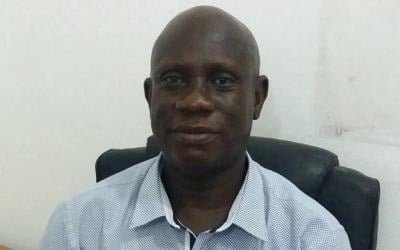The New Patriotic Party (NPP) finds itself at a crossroads following its defeat in the 2024 general elections, a loss that has sparked introspection and calls for restructuring within the party ranks. Adding to the post-election analysis is the outspokenness of Nana Obiri Boahen, former Deputy General Secretary of the NPP, who has publicly declared his refusal to participate in any investigative committee formed to dissect the party’s electoral shortcomings. Boahen’s stance stems from a deep-seated feeling of being undervalued and overlooked by the party leadership, particularly during the 2024 campaign.
Boahen’s grievances center on his exclusion from the official campaign team, despite his significant contributions and unwavering support for the NPP. He recounted his active campaigning efforts, contrasting his dedication with the perceived lack of recognition and appreciation from the party. This perceived slight, he argues, disqualifies him from participating in any post-mortem analysis of the election results. He questions the sincerity of such a committee, suggesting it’s a belated attempt to acknowledge his contributions after they were initially disregarded. His pointed question – “If it were you, would you go?” – underscores his disillusionment and the perceived hypocrisy of the situation.
The former Deputy General Secretary’s disappointment highlights a potential disconnect between the party leadership and its dedicated members. Boahen’s experience raises questions about the NPP’s internal dynamics and the potential consequences of overlooking committed individuals. His public declaration of refusal could be interpreted as a symptom of a larger issue within the party: a possible failure to recognize and reward dedicated members, which could ultimately contribute to demoralization and disengagement.
While expressing his frustration and refusal to join any investigative committee, Boahen simultaneously reaffirmed his enduring loyalty and affection for the NPP. This seemingly paradoxical position underscores the complexity of his relationship with the party. His continued allegiance despite his grievances speaks volumes about his deep-rooted commitment to the NPP’s ideals. However, his public airing of discontent also serves as a poignant reminder of the importance of valuing and recognizing dedicated members within any political organization.
The NPP’s defeat in the 2024 elections has brought internal tensions to the forefront. Boahen’s public pronouncements add another layer to the party’s post-election challenges. His refusal to participate in an investigative committee, while rooted in personal experience, also raises broader questions about the party’s internal structure and its ability to harness the potential of its members. The NPP’s path to recovery will undoubtedly require addressing these internal dynamics and ensuring that dedicated members, like Boahen, feel valued and appreciated.
Moving forward, the NPP faces the daunting task of rebuilding and regaining public trust. The party’s response to Boahen’s grievances, and to the broader concerns of its members, will be crucial in shaping its future. Addressing internal divisions, fostering a more inclusive environment, and recognizing the contributions of all members are essential steps towards rebuilding party unity and charting a course for future success. The 2024 election defeat and its aftermath, including Boahen’s public stance, serve as a critical juncture for the NPP, a time for reflection, reform, and recommitment to its core values and its membership.


